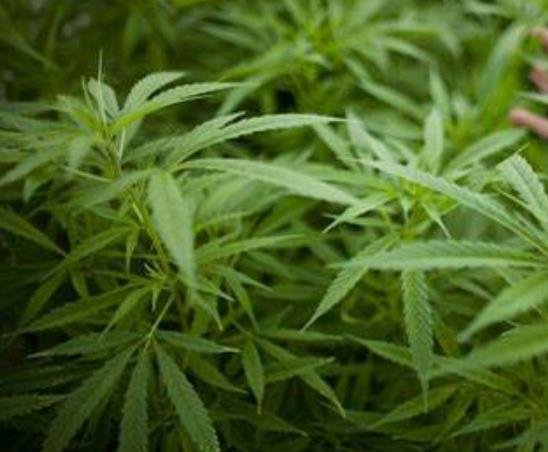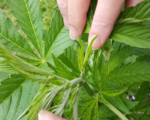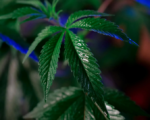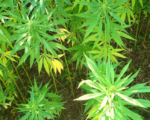Florida’s House Budget Committee has taken a significant step towards tightening regulations on hemp-derived THC products by advancing two bills that could reshape the state’s cannabis market. These proposals, passed on April 16, are set to impose stricter rules on retailers and introduce a new excise tax that could generate billions in revenue.
The Growing Debate Over Hemp-Derived THC
As the hemp market continues to boom in Florida, lawmakers are aiming to gain more control over the growing industry. Florida’s hemp-derived THC market has experienced explosive growth, with estimates showing that sales reached over $10 billion in 2022. However, concerns have surfaced about the lack of oversight in this largely unregulated sector, leading to the introduction of House Bills 7027 and 7029.
House Bill 7027 is designed to tighten regulations on THC products, while House Bill 7029 proposes the creation of a 15% excise tax on retail sales of these products. The latter bill, however, requires a two-thirds majority from both chambers of Florida’s Legislature to pass, making it a significant hurdle.
While the new bills have drawn widespread support from lawmakers, there are those who argue that they could stifle an industry that is rapidly becoming a key part of Florida’s economy. Critics argue that the tax could push consumers toward the black market or raise prices for legitimate businesses, harming both producers and consumers alike.

The Impact of the Proposed 15% Excise Tax
One of the most controversial elements of these bills is the introduction of a 15% excise tax on hemp-derived THC products. According to estimates from Whitney Economics, the hemp market in Florida brought in over $10 billion in sales last year, suggesting that the excise tax could generate more than $1.5 billion annually for the state. This tax revenue would be allocated to fund the Department of Agriculture and Consumer Services (DACS) and its hemp enforcement programs.
For supporters, this tax is seen as a way to create more accountability in the market, ensuring that cannabis products are safe and properly regulated. They believe that the funding generated by the tax will provide essential resources for the state’s hemp program, which has faced challenges in maintaining quality control and safety standards for these products.
However, the 15% excise tax is not without its critics. Jodi James, president of the Florida Cannabis Action Network, expressed opposition to the new tax during the committee hearing. She argued that nonintoxicating CBD products, which contain only trace amounts of THC, should be treated similarly to vitamins and supplements. Under Florida law, these products are not taxed, and James contends that hemp-derived products with low THC levels should follow the same path to keep costs down for consumers.
Potential for $1.5 Billion in Tax Revenue
-
The excise tax is estimated to generate over $1.5 billion annually.
-
The first $6 million in tax revenue would go to fund the DACS General Inspection Trust Fund.
-
The remaining funds would be allocated to Florida’s general fund.
A Divided Opinion on Hemp Regulation
The debate over hemp regulation in Florida is divided, with some advocating for more stringent rules to ensure safety and consumer protection, while others worry about the economic impact of increased taxation. Supporters of the new bills point to the need for stronger enforcement of safety standards, arguing that the state’s hemp program requires additional funding to ensure the products sold are safe for consumers.
However, critics fear that the proposed tax could discourage hemp retailers and manufacturers from operating in Florida, or worse, drive consumers toward unregulated markets. The fear is that these changes may have unintended consequences, such as increasing black market sales or forcing legitimate businesses to move out of the state. The state’s hemp industry, while still growing, is already feeling the pressure of increased regulation in other sectors, and these new bills could add to that burden.
Some have even suggested that the bills should differentiate between THC products with higher concentrations of the compound and those with trace amounts of THC. The argument is that products like CBD, which contain little to no THC, should not be penalized with additional taxation since they do not produce intoxicating effects.
What’s Next for Florida’s Hemp Market?
As these bills move forward in Florida’s legislative process, it remains to be seen how lawmakers will address the concerns raised by both proponents and opponents of the new regulations. The upcoming votes in the Florida Legislature will determine the fate of these proposals, but one thing is clear: the conversation about hemp-derived THC products in Florida is far from over.
This debate is expected to heat up as stakeholders in the hemp industry continue to voice their opinions, and lawmakers push to find a balance between regulation and economic growth. Whether the state can strike that balance will likely shape the future of the hemp market in Florida for years to come.
Maria Garcia is an award-winning author who excels in creating engaging cannabis-centric articles that captivate audiences. Her versatile writing style allows her to cover a wide range of topics within the cannabis space, from advocacy and social justice to product reviews and lifestyle features. Maria’s dedication to promoting education and awareness about cannabis shines through in her thoughtfully curated content that resonates with both seasoned enthusiasts and newcomers alike.








